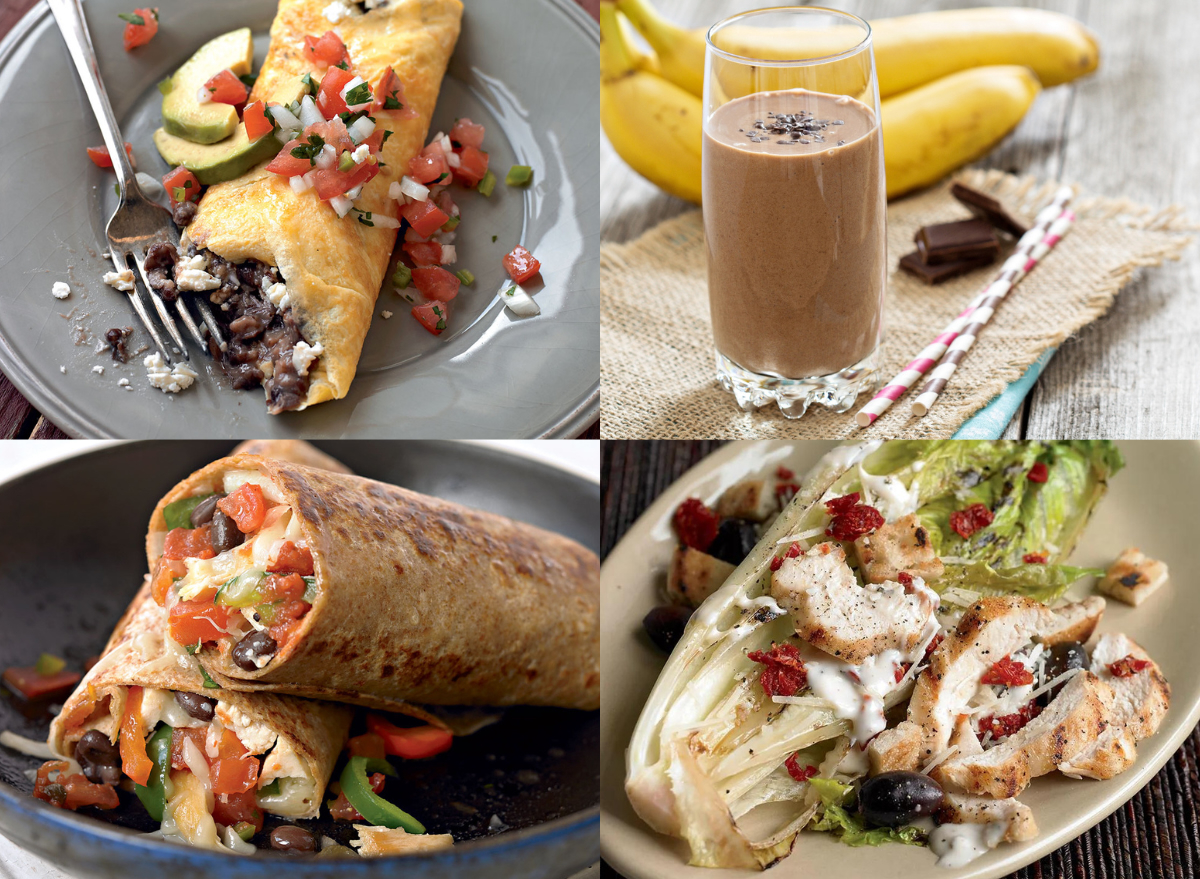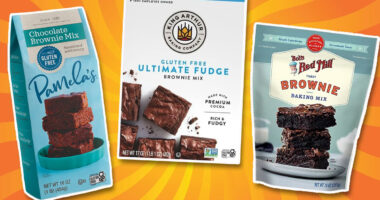Everyone’s calorie needs vary based on individual goals, such as weight loss, maintenance, or muscle gain. Understanding your health and weight objectives is the first step in determining your daily calorie intake.
For example, if you have a weight loss goal, your calorie needs will be different than if your goals are sports performance and muscle gain. Once you have determined how you want food to influence your weight, health, and performance, you can begin to determine your energy needs.
For those focusing on weight management, a 1,500-calorie meal plan can be an effective tool. Curated by registered dietitians, this plan emphasizes nutrient-dense foods that support a calorie deficit to help you achieve your goals without sacrificing nutrition.
Who is a 1,500-Calorie Diet Safe For?
A 1,500-calorie diet can work for a wide range of people. For example, someone who already requires a relatively low calorie intake to maintain weight or adult women who are moderately active and aiming for weight loss or maintenance.
However, for most adult men or highly active individuals, 1,500 calories does not support their needs, even if weight loss is their goal. While a calorie deficit is helpful for weight loss, too large of a deficit can lead to muscle loss, fatigue, and a weakened immune system. Before determining if 1,500 calories is right for your goals, check with your doctor or dietitian to ensure you are meeting your physiological needs.
How to Determine a Safe Calorie Deficit for Weight Loss
If weight loss is your goal, building a safe calorie deficit—eating fewer calories than you burn—is essential. For example, if you burn 2,000 calories per day, including all activity and exercise, you may aim for a calorie intake of 1,500 to encourage weight loss.
A common approach is to aim for a 500-calorie deficit per day, which can translate to about 1 pound of weight loss per week. However, everyone’s metabolism is different, and the rate of weight loss can vary.
Creating a smaller deficit in your diet, say around 200 calories daily, can also result in weight loss, although it is likely to occur at a slower rate than the 500-calorie deficit. On the other hand, eating at a larger calorie deficit that is significantly over 500 may result in more rapid weight loss, although it could compromise your energy, muscle, and immunity. Too large of a calorie deficit is not recommended for these reasons.
Read on to explore what a nutrient-dense 1,500-calorie day of eating looks like, featuring balanced meals and snacks designed to help you achieve your weight management goals.
Breakfast
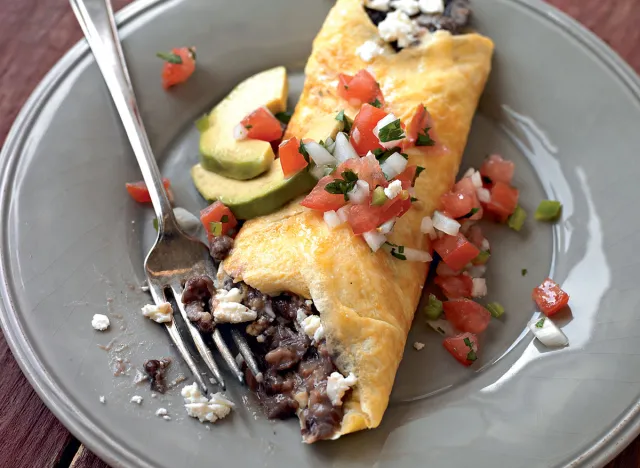
Sample breakfast: Vegetarian Black Bean Omelet (330 calories)
This recipe has the making of a balanced meal with quick and easy preparation. You’ll get plenty of protein from the eggs, cheese, and black beans in this recipe. This will aid in fullness and also supports your muscle tissue. The black beans in this recipe provide a hearty dose of fiber, which also contributes to satiety, and aids in digestive regularity. Top with avocado and pico de gallo for a boost of nutrients and flavor.
Other breakfast ideas:
Morning Snack
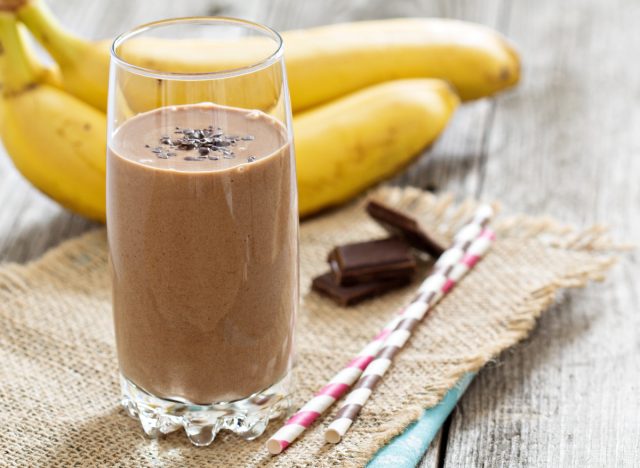
Sample snack: Dark Chocolate Banana Nut Smoothie (229 calories)
Smoothies are a great way to pack tons of nutrient-dense ingredients into a single container. Even better, they require little time to prep. The combination of ingredients in this smoothie makes it high in protein, loaded with healthy fats, and a filling snack with 7 grams of fiber. It is also plant-based, allowing it to work for those who follow a plant-based diet, or who limit their intake of dairy.
Lunch
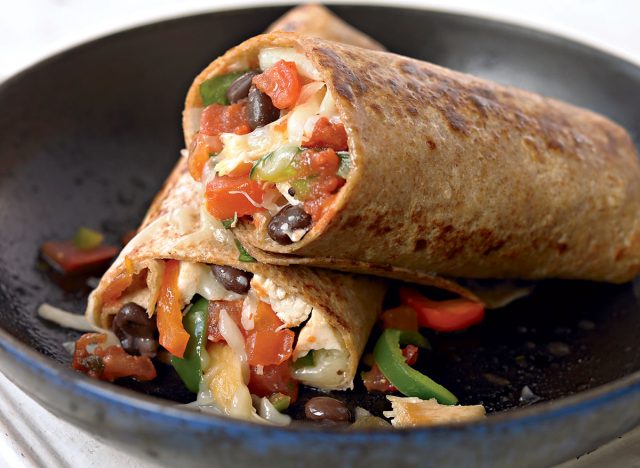
Sample lunch: Chicken Fajita Burrito (355 calories)
While a burrito can be high in carbs, this option uses a 10-inch whole wheat tortilla which provides a reasonable amount of carbs with plenty of filling fiber. You’ll also get filling protein from the chicken, and a boost of fiber and nutrients from the onion, peppers, and beans. Enjoy with your favorite hot sauce for a flavorful meal that fits in your 1,500-calorie meal plan.
Other Lunch ideas:
Afternoon Snack
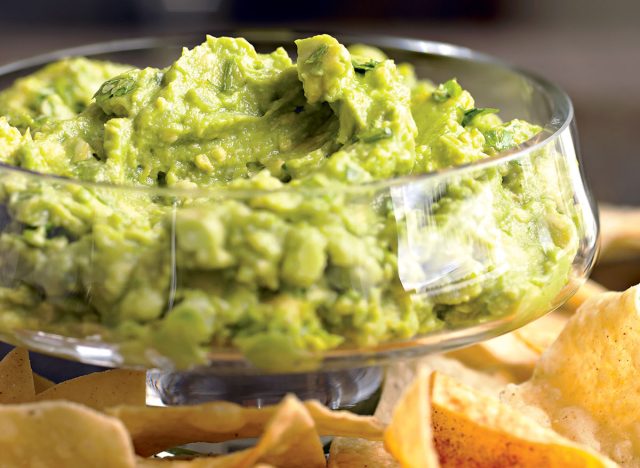
Sample snack: Guacamole (190 calories)
Avocado is a great source of fiber and healthy fats, and its mild flavor allows it to be paired with other ingredients to create this flavorful dip. Pair your guac with raw veggies, like carrots, celery, jicama, and cherry tomatoes for a nutrient-packed snack that is easy to make and beloved by many. If you have some calories to spare in your meal plan, add a few tortilla chips for a classic, crunchy snack.
Dinner
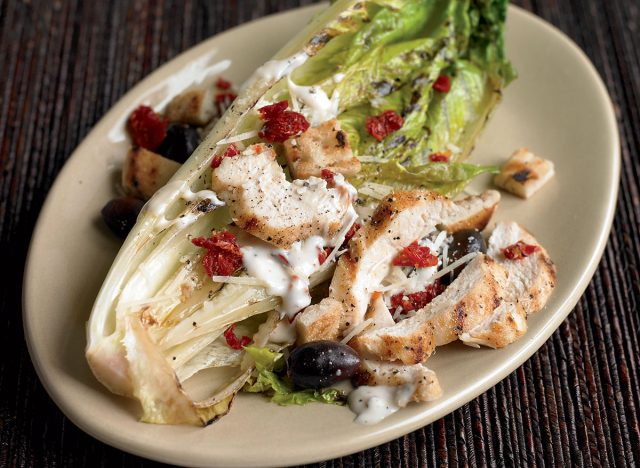
Sample dinner: Grilled Caesar Salad (410 calories)
Salads can be loaded with nutrients and provide a large volume of food for a reasonable number of calories. While traditional Caesar dressing is loaded with fat and can contribute hundreds of calories to your salad, this homemade option packs familiar flavors for fewer calories. The grilled chicken adds lean protein, and you’ll get plenty of fiber and nutrients from the base of romaine lettuce. Swap your chicken for shrimp to change up the flavors, and incorporate some spinach for even more nutrients.
Other dinner ideas:
Total Calories: 1,514
Vegetarian Black Bean Omelet (330 calories) + Dark Chocolate Banana Nut Smoothie (229 calories) + Chicken Fajita Burrito (355 calories) + Guacamole (190 calories) + Grilled Caesar Salad (410 calories) = 1,514
Final Thoughts
A 1,500-calorie diet can be loaded with delicious food while also allowing you to work toward your wellness and weight goals. Although it may not be the correct calorie amount for everyone, there is a wide range of people that can healthfully eat a 1,500-calorie diet. Before beginning any new diet, you should check with your physician or a registered dietitian to ensure your energy and health needs are adequately met.
A balanced diet is one that provides adequate protein, carb, fat, and fiber, and a wide variety of vitamins and minerals. No matter your calorie intake, a balanced, nutrient-dense diet should be priority.

